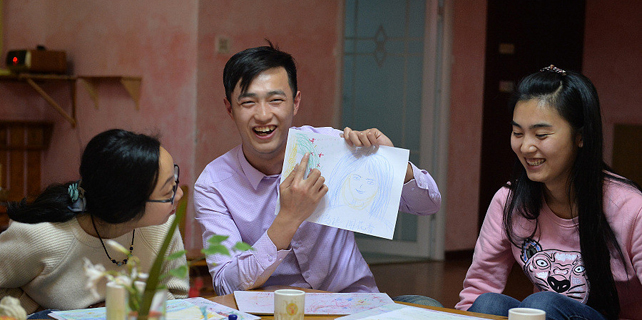Treat trade partners without bias and share with them
BEIJING - Once again, China's efforts to support technology-driven growth have been hit by complaints tainted with the familiar prejudice that has prevailed among Western countries for ages.
In its latest report, an American business group is spreading concerns that China's plan to develop its technology and manufacturing sector might squeeze foreign firms out of the competition in these promising fields.
By condemning China's persistent efforts to develop technology and manufacturing, which aim at stabilizing the economy and creating jobs in the face of global downward pressure, the accusations fail by their own logic.
For decades, foreign investors have collected handsome profits from a major fast-growing economy in the world while sitting on cheap labor, generous consumers and "super national treatment" - a term used in China to describe exclusive preferential policies such as hefty tax breaks.
Now grievances and grumbling have come as this "super national treatment" is rolled back while China pursues a market-oriented economy and more innovative Chinese firms have emerged as competitors.
There is no need to reiterate the role of competition in a market economy. The shift of the Chinese economy into a consumer- and technology-driven one means more opportunities for the world at large.
The Chinese leadership has reassured the world about its efforts to open up. More critical economic areas such as national science and technology projects are open to global investors, and free trade zones have been established.
Under the Made in China 2025 initiative, a plan to modernize the manufacturing sector, foreign firms will be treated the same as domestic firms and enjoy the same preferential policies.
Problems arise due to the fears those global industry leaders have about losing their competitive edge, as China's growing innovative power will break their monopolies on technology.
Restrictions on high-tech exports to China by developed countries are rarely mentioned by our biased trade partners. For instance, the US Export Administration Regulations limited the exports of a wide range of high-tech items, including medical treatment supplies, navigation products, as well as energy and new materials, to China, citing ungrounded security concerns.
Another example is the new energy vehicle industry, cited by the report, which blames China for nurturing its own firms while blocking access for foreign firms.
As a matter of fact, the entry policies in these sectors target both foreign firms and domestic businesses alike. On the other hand, subsidies for domestic electric vehicle producers have been significantly reduced to create a fairer environment for foreign investment.
While singling out China's support for domestic new energy vehicle producers, the report turns a blind eye to the fact that Western countries such as Germany provide massive financial support and subsidies to nurture this new industry.
With pressure lingering in both the global and domestic markets, China is destined to transform from "world factory" into a center of innovation in order to stabilize its own economy and continue to drive global growth.
Instead of getting stuck on their past glory as industry monopolies, these grumpy foreign firms need to adapt to new norms, compete fairly with Chinese counterparts and share with them.






















